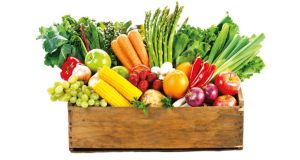 Blog by Jack Yarrow from waste management experts Grundon
Blog by Jack Yarrow from waste management experts Grundon
It’s good to see facilities managers thinking differently about waste in recent years. Items once thrown out with barely a second thought are today increasingly seen as a valuable commodity that can help save money, boost environmental credentials and be good for the planet – providing it is correctly managed.
However while recycling some materials, such as glass, paper and cardboard have become the norm, there are still many items whose recycling potential is largely untapped.
Expert analysis of your corporate waste, ideally via a waste audit, can identify hidden gems and help inform the development of a strategy for disposal which will deliver both value and environmental benefits.
Many businesses often don’t realise that developments within the waste sector – new waste streams and innovative technologies – have meant there are many more opportunities to recycle a much broader range of products.
However, to achieve this effectively and efficiently, it’s important to understand both the quantity and quality of materials required to achieve rebates.
The value of different waste streams will vary according to market demands, but there’s plenty of scope for earning substantial rebates.
We have some indications here of the monetary value – indications only – of various waste products.
Cardboard and paper
Cardboard, commonly recycled, can earn you £80 per tonne when baled, usually for a minimum of 10 tonnes. We call it ‘beige gold’ and its value has steadily increased over recent years. One of our clients, Lakeside Shopping Centre in Essex, recently earned £24,000 in six months after baling and recycling its cardboard.
For paper, each time you recycle a tonne you’re saving 380 gallons of oil. Baled, it’s worth £50 per tonne for a minimum of 10 tonnes.
Paper cups are a real bugbear of ours – less than one per cent of the seven million disposed of in the UK each day are recycled. The problem is the polyethylene film bonded on the inside, which makes them waterproof but is hard to separate. At Grundon, we send them to a specialist facility where 100 per cent of the cup is recycled. It can even be turned into office paper, which is great for the circular economy.
Metals and glass
Metals are easy to recycle and come at different values, usually earning you between £40 and £80 per tonne. Transport costs will vary on the quality of the metal, which can be rapidly back in use avoiding the need for landfill.
Plastics
LDPE (low density polyethylene) plastic film or pallet wrap is commonly used for products, for bags, food and beverage containers and the like. If it’s 95 per cent clear it can earn you £250 per tonne and a maximum load of 23 tonnes (worth almost £6,000) will cost around £350 to dispose of.
Polypropelene (PP) makes up the white plastics often used in the food industry for buckets and so on. Clean and free of residues this can be worth £200 per tonne. Dirty, it will earn £50 per tonne. Transport costs will vary depending on quantity.
HDPE (high density polyethylene) is commonly used for drums and cans. Baled it can generate rebates of £80 per tonne, or £100 per tonne if free and clear of residue. Again, transport costs for loads of up to 22 pallets will vary.
Plastic crates, made of HDPE or PP are worth £100 if clear and residue-free.
Polystyrene is recyclable, too. Baled, clean and free of residue it is worth £400 per tonne if you have a minimum of five tonnes to collect.
Corex, the corrugated plastic sheets often used for signage and boards, will earn a £200 rebate per tonne depending on the grade and amount of filler.
Top tips for uncovering hidden gems
First, the practicalities. Rethink your outdoor space to maximise storage and cut collection costs. Ask about buying or renting a compactor or baler, depending on your requirement. And make sure your waste is clean – you’ll derive a bigger rebate that way.
Second, strategy. Ask an expert to do a recycling audit at your business. It costs nothing and delivers huge potential. Also, find a company who can handle all your streams, as this is the most cost-effective way. Encourage your employees to understand the strategy and get involved, and use data to thank them for their performance.




